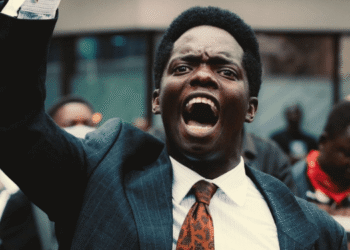The High Court suspends parts of the Cybercrimes Act in a pivotal ruling that’s handed a lifeline to free speech advocates, as Justice Chacha Mwita issued conservatory orders Wednesday halting enforcement of controversial sections 27(1)(b), (c), and (2) of the Computer Misuse and Cybercrimes (Amendment) Act, 2025, amid blistering challenges from musician Dr Reuben Kigame, the Kenya Human Rights Commission (KHRC), and the Law Society of Kenya (LSK).
The trio’s petitions paint the provisions as a constitutional sledgehammer, enabling unchecked state snooping that guts rights to privacy and expression, a freeze that holds until the bench dives deeper on November 5.
The courtroom drama unfolded in Milimani’s hallowed halls, where lawyers for the petitioners – a formidable front blending artistic fire with legal steel – argued the amendments morph keyboards into kettles, boiling over with vague “hate speech” nets that could snag journalists, activists, and everyday tweeters venting on everything from potholes to politics.
“These clauses aren’t shields against trolls; they’re swords for surveillance,” Kigame, the gospel crooner turned rights warrior, told reporters post-ruling, his voice steady as a hymn amid the flashbulbs.
KHRC’s executive director echoed the alarm: “In a digital age where dissent dances online, this act risks turning Kenya into a panopticon – eyes everywhere, voices nowhere.”
The LSK, spearheading the charge, hailed the stay as a “breather for the Bill of Rights”, with Faith Odhiambo tweeting triumphantly: “The @LawSocietyofKe filed a petition challenging the constitutionality of section 27(1)(b), (c) and (2) of the Computer Misuse and Cybercrimes Act.
“The High Court has issued conservatory orders suspending the enforcement and implementation of the provisions pending hearing and determination of the application filed with the petition. The matter is scheduled for further directions on 5th November 2025.
Government defenders, led by AG Dorcas Agik Oduor’s team, pushed back hard, framing the tweaks as essential armour against the cyber wild west – think deepfakes derailing elections or bullying blitzes scarring youth psyches.
“We can’t let the net run wild without rules; these sections target threats, not thoughts,” a State House brief insisted, nodding to rising incidents like the 2024 TikTok terror that saw 500 harassment reports spike.
Yet the bench wasn’t buying the rush: Mwita’s order, a 12-page scalpel, dissects how the language – “false, misleading or fictitious” info – sweeps too broad, potentially criminalising satire or scrutiny in a nation where 70% of discourse hums on X and WhatsApp.
This suspension isn’t just legalese limbo; it’s a litmus for Kenya’s fragile freedoms, echoing the 2018 act’s own rocky rollout that birthed jail stints for bloggers.
As November 5 looms, civil society stirs: Amnesty International’s Africa desk called it a “vital veto on overreach”, while tech hubs in iHub buzz with webinars on “safe scrolling sans shackles”.
For Kigame, whose anthems once rallied Saba Saba streets, it’s personal – a verse in his ongoing ballad against muzzling. “Music thrives on truth; so does democracy,” he mused, strumming an air guitar for the cameras. Will the full hearing forge fairer fences or fuel fiercer fights?















